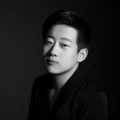IaaC Global Summer School 2025
Qingdao Node
DESCRIPTION
The IaaC Global Summer School (GSS) 2025 is an international initiative exploring cutting-edge design, technology, and spatial innovation. This year, the Dubai Node focuses on integrating neurotechnology, generative AI, and human-machine interaction into the spatial design discourse through hands-on prototype development.
Neurotechnology allows both biosensing and interaction, it is one of the future paradigms that will change how we design, interact with technology, understand ourselves, and how we are affected by the world around us. While neurotechnology is an enabler as such, we will be exploring it through its applications with AI, Physical computing, and spatial design at large.
IAAC Global Summer School (IAAC_GSS) is a global architectural education practice event of the Catalan Institute of Advanced Architecture. It aims to explore design themes such as future architecture, artificial intelligence, and data-driven through interdisciplinary workshops. It has been held for 17 sessions and has attracted students from more than 50 countries and regions around the world. Currently, IAAC has opened 24 candidate places for registration. Interested students are requested to register as soon as possible.
IAAC Global Summer School(IAAC_GSS)IAAC全球暑期学校,是加泰罗尼亚高等建筑研究院的全球建筑教育实践盛会,旨在通过跨学科工作坊的形式,探索未来建筑、人工智能、数据驱动等设计主题。举办至今已历17届,吸引全球50多个国家和地区的学生。目前IAAC已开放 24 个报名候选名额,请感兴趣的学员尽早报名。
RESULTS OF PREVIOUS EDITION
STRUCTURE
TUTORS

Firas Safieddine 菲拉斯·萨菲德丁
Spatial Design Practitioner | Research Cluster Lead
IAAC MAA02导师| SPATIAL FORCES梓盟 联合创始人
是一位空间设计实践者,他的作品涉及建筑、城市规划、设计、生态学、媒体艺术和神经技术。他创造了“电气生态”的概念,并致力于设计第一个“建筑脑植入”。
他是Spatial Forces的创始人和执行战略师,这是一家从微控制器到领土规模的下一代空间设计实践公司,根据当前的技术环境重新定义空间设计。
他是《空间化占据指挥权》一书的作者,该书探讨了互联网的演变,以及我们所生活的城市生活和未来的发展趋势。
Firàs is a spatial design practitioner whose work spans architecture, urbanism, design, ecology, media art, and neurotechnology. He coined “Electrical Ecologies” and aims at designing the first ‘architecture brain implant’.
He is the founder and executive strategist at Spatial Forces, a next-generation spatial design practice operating from the microcontroller to territory scales, redefining spatial design in light of the current technosphere.
His professional involvement beyond Spatial Forces engages with strategy, writing, community building, and academia. He is a co-founder and Creative Strategist at Urbanitarian, an author and editorial board member at UrbanNext, and a Chapter lead at NeurotechBCN, the Barcelona chapter of NeurotechX.
He is the author of “Spatialization Takes Command”, a book that navigates the evolution of the internet, and the future of urbanism and life as we live it.

Yimeng Wei魏易盟
Architect | Multi-disciplinary Designer | Co-founder of Spatial Forces
是一位“广义建筑学”概念的践行者,擅长以AI / NeuroTech / Metaverse / 参数化等技术手段赋能设计应用和落地把控。作品包含原型研发、元宇宙场景交互、建筑及室内、新媒体艺术等领域,曾获国际及国内奖项二十余项。
此外,他还涉及穿戴设备研发、机器人增材制造、生态材料研究等领域,并数次在London ISWC、DigitalFutures等平台发表其相关的设计作品及学术论文。
Yimeng Wei is a practitioner of “Extended Architecture”—a concept that blends traditional spatial design with emerging technologies. His work leverages tools such as AI, NeuroTech, the Metaverse, and parametric design to enhance creativity, ensure implementation feasibility, and push the boundaries of architectural practice. His portfolio spans prototype development, interactive Metaverse environments, architectural and interior design, and new media art, earning him over twenty international and domestic awards.
Beyond design, Yimeng is also active in fields such as wearable technology, robotic additive manufacturing, and ecological materials research. His design works and academic papers have been featured on platforms including London ISWC and DigitalFutures.

Amir Habibi 阿米尔·哈比比
创意技术专家 | TouchDesigner 开发者,实时交互和数据驱动的仿真设计
来自伊朗的创意技术专家,他在艺术与技术的交叉领域工作,深受心理学、数学、建筑学和认知科学的启发。
他拥有材料工程背景,并通过自学进入创意编码和实时系统领域。他使用TouchDesigner、GLSL、Python和物理计算等工具开发情感共鸣的体验。
阿米尔的作品探索了脑波驱动的装置、基于运动的模拟和传感器集成的环境,将尖端技术与诗意互动相结合。
Amir Habibi is a creative technologist from Rasht, in the north of Iran, working at the intersection of art and technology — deeply inspired by psychology, mathematics, architecture, and cognitive science. With a background in Materials Engineering and a self-directed path into creative coding and real-time systems, he develops emotionally resonant experiences using tools like TouchDesigner, GLSL, Python, and physical computing. Amir’s practice explores brainwave-driven installations, motion-based simulations, and sensor-integrated environments — merging cutting-edge technology with poetic interaction. He has collaborated with national brands, architectural studios, and cultural institutions to craft immersive artworks and interactive systems. For him, each project is an experiment in connecting human experience with machine logic and imagination.

Cristian Rizzuti 克里斯蒂安·里祖提
Interactive Media Artist & Researcher | Physical Computing Expert
IAAC MAA01/02导师 | 交互艺术家 | 物理计算专家
一位活跃于巴塞罗那与罗马的交互媒体艺术家,拥有威尼斯建筑大学视觉与多媒体艺术学位及交互环境设计硕士(M-IA)背景。他的创作聚焦人类感知的边界探索,通过联觉空间、与身体感知紧密关联的情感共鸣声音和景象,构建独特的沉浸式体验。
现任罗马美术学院教授,并担任加泰罗尼亚高等建筑学院(IAAC)物理计算专家。其艺术实践受科学、数学与数字实验启发。并且作品曾参展欧洲顶级艺术场景,包括巴塞罗那Sónar音乐节、罗马MAXXI国立美术馆、威尼斯双年展及卡尔斯鲁厄ZKM艺术与媒体中心。
Cristian Rizzuti is an interactive media artist working between Barcelona and Rome. With a degree in Visual and Multimedia Arts and a Master’s in Interactive Environments (M-IA) from IUAV University of Venice, Cristian’s work centers on the intersection of human perception, synesthetic spaces, and emotionally resonant soundscapes connected to the body.
Inspired by science, mathematics, and digital experimentation, his artistic language takes shape through interactive installations and light sculptures. His works have been exhibited at major festivals and institutions across Europe, including Sónar Festival (Barcelona), the MAXXI Museum (Rome), Venice Biennale, and ZKM Center for Art and Media (Karlsruhe).
Cristian currently teaches at the Academy of Fine Arts in Rome and is a Physical Computing Expert at the Institute for Advanced Architecture of Catalonia (IAAC), where he explores the convergence of art, technology, and responsive environments.

Will Stark 威尔·史塔克
Comprehensive Anticipatory Designer | Parallel Entrepreneur | Radical Futurist
前卫设计师 | 跨领域企业家 | 激进未来主义者
一位前卫设计师、跨领域企业家及未来探索实践者。专注于构建包容、可持续且具有变革力的未来。
他横跨研究、教学与实践领域,目前主导多个创新项目:创办未来设计咨询机构 AIM DESIGN,通过定制化服务助力前瞻性品牌实现影响力升级;领导去中心化设计研究机构 X Fusor Design Labs,开发跨领域协作系统 X Fusor SYSTEM;参与创立 X ACADEMY 教育平台,传播前沿技术知识。
无论是商业创新还是设计实验,William的工作始终在探索人类未来发展的可能性与方向。
William Stark is a comprehensive anticipatory designer, parallel entrepreneur, and radical futurist. Born in China, raised in the U.S., and now based in Dubai, William is committed to envisioning, designing, and building futures that are inclusive, resilient, and transformative.
His experience spans research, teaching and practice, as he leads his Augmented Integrative Momentum (AIM) DESIGN, a design future Consultancy and Subscription Service agency to amplifying the impacts of visionary brands, X Fusor Design Labs, a visionary Decentralized Autonomous Design research, studio and agency collective pioneering the X Fusor SYSTEM, and part of X ACADEMY to disseminate cutting edge knowledge with a program that filled with innovative spirits.
His multidisciplinary approach blends strategic foresight, speculative design, and systems thinking to tackle complex global challenges. Whether through entrepreneurship or design experimentation, William’s work explores the possibilities of what tomorrow can—and should—look like.
LECTURES
LOCATION
2025年IAAC全球暑期学校(GSS)
The IAAC Global Summer School (GSS) 2025 will be held at the AIE Studio智造工坊, located in Qingdao’s historic Textile Valley. Once the heart of the city’s textile industry, Textile Valley has been transformed into a vibrant hub for innovation, culture, and design. The site preserves its industrial heritage through Bauhaus-style architecture and vintage machinery, while embracing a new identity as a creative ecosystem for artists, technologists, and entrepreneurs. With its blend of history and forward-thinking energy, Textile Valley offers an inspiring environment for exploring the future of spatial design and architecture.
REQUIREMENTS
Eligibility
IAAC GSS is open to creative and innovative people who are interested in fields such as architecture, urbanism, digital fabrication, design, art, etc., searching for a multidisciplinary experience in an rich and dynamic environment. No previous skills are required, although design, programming and physical computing skills are welcome. The official language of the course is English.
Credits
By the end of the course, participants will have gained both theoretical and practical knowledge about advanced design strategies, with a particular emphasis on neurotechnology, AI, and interactive media art. On the final day, participants will present their developed projects, which will be reviewed by a distinguished jury, and will receive a Global Summer School Diploma.
Visa
Each participant is responsible to investigate which documents are required via the embassies in their country of origin. The school will provide a confirmation letter regarding the participation to the course, and will assist the visa process wherever is possible.
Fee
The Qingdao (China) Node is an open program carried out in collabraiton with QUT Qingdao University of Technology, with the participation of Spatial Forces and AIE Studio. Please note that students wishing to travel to Qingdao for the IaaC GSS are responsible for covering their own travel and accommodation expenses.
APPLICATIONS




